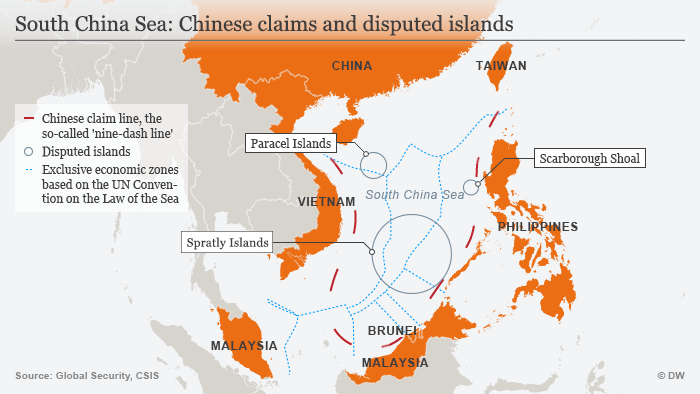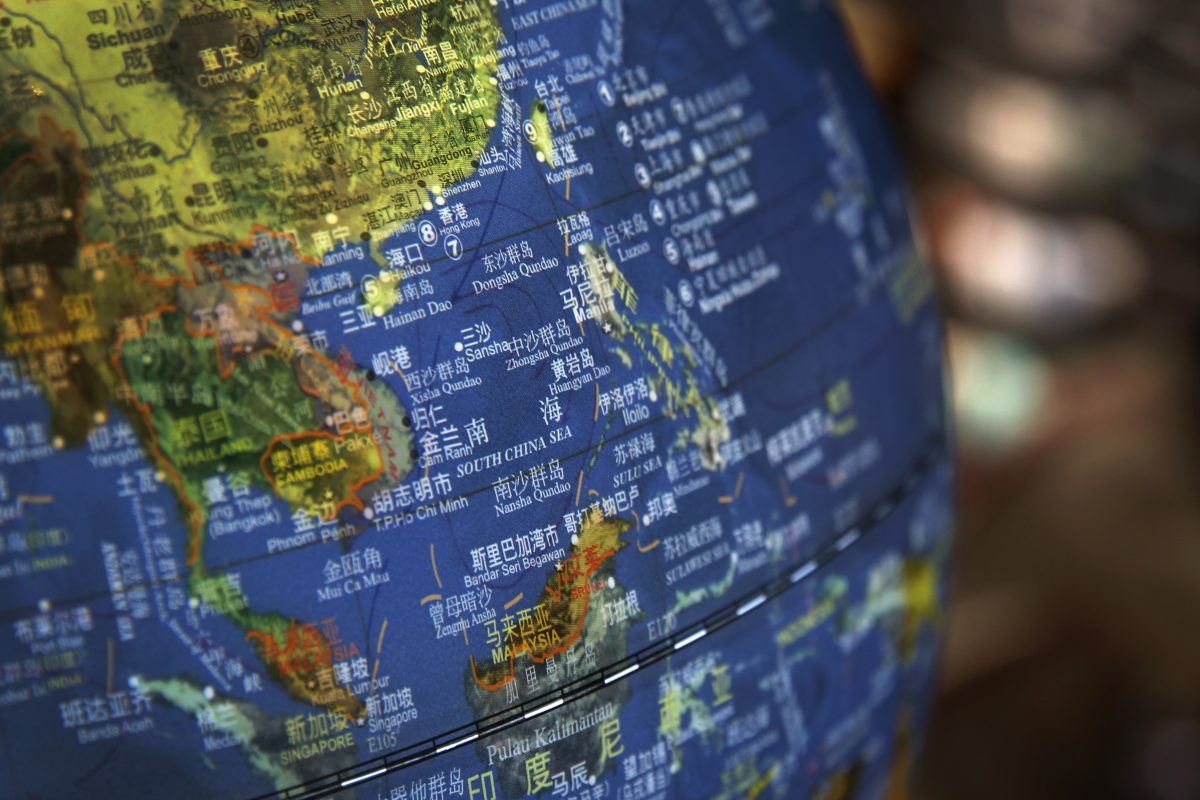By Katya Mavrelli,
After leaving Afghanistan, the US now has to settle another big challenge in the region; the tensions in the South China Sea are rising. With China acquiring the status of a dominant player in the status quo and no longer just a rising power, the situation is in its favor. However, since 2016, the Southeast Asian nations with legal rights over the seas are no longer sitting back, allowing Chinese violations to pass by.
Many of the Southeast Asian nations, like the Philippines and Vietnam, are committed to defending their maritime rights over the region. Realizing that there can be no change without commitment, this pact of states is siding with the US to protect their claim over the maritime region. President Biden is standing firm along with these states, as did former President Trump, and openly suggests that all Chinese maritime claims that are inconsistent with the 2016 ruling of a special arbitration tribunal cannot be recognized by law. The US is also prepared and ready to intervene, as outlined by the treaty, in case there is an attack on Philippine forces in the region.
With this in mind, the Biden administration is laying the foundations for the formation of a formal union of states, which favors the support of the US and aims at regional security. Having the marginalization of Chinese influence as a greater goal, this union of states will serve as the first step for the formation of an international coalition that supports a maritime legal order, as outlined by maritime law treaties.
The United Nations Convention of the Law of the Sea (UNCLOS) lays down some principles regarding, among others the legal use of the seas, the importance of resources on the continental shelf, and seabed and maritime delimitation. However, more concrete and concise documents ought to be formulated. This is due to the lack of legality of the UNCLOS treaty in case a state has not signed or ratified it, and because of the absence of arbitration mechanisms. The existence of few and weak tribunals, like the International Tribunal of the Law of the Sea, creates the conditions for maritime violations and the formation of independent regimes at sea according to national perspectives.

Over the last five years, Vietnam has taken the strongest and most determined position in the South China Sea. It often denounces new Chinese claims of sovereignty through diplomacy and has quietly upgraded its military defense capabilities in the Spratly Islands, which is an expanse of contested reefs and islets claimed by China, Vietnam, Malaysia, the Philippines, Taiwan, and Brunei. Even though their soft diplomacy tools seem to be keeping the Chinese at bay, they aren’t willing to assume the leading role of any pact of states.
At the same time, Malaysia remains the quietest of all the major claimants in the region. Historically quiet on issues of maritime delimitation, it rarely makes domestic or international maneuverings. Despite some change in its foreign policy outlook in 2018, it still remains unwilling to actively push back against the Chinese even though the latter exercises its direct influence on Malaysian natural resources exploration.
The ‘step-up’ in Chinese actions in the region implies that all southeast Asian states ought to undergo a foreign policy makeover if they want to keep pushing back against their largest contender. If they want to keep claiming their –legal– rights over the region of the South China Sea, they might need to bear some teeth sooner rather than later. The Biden administration is following the steps of the Trump administration is trying to convince their Southeast Asian partners to play the ‘bad cops’ and oppose China’s claims. This effort coincides with a growing European focus on maritime security and the prioritization of maritime delimitation claims before international law.
As Chinese control over disputed waters grows stronger, the US should not sit back and watch as strategic points are taken off the map. Contrary to its position with Iran so far, where the US has not actively and precisely performed the ‘first strike’ that will make the other side halt all operations even temporarily, the foreign policy model that needs to be followed in this case differs.
The formation of a possible coalition of Southeast Asian states may be the first step towards greater regional stability and better international law enforcement. Given the vagueness and generality of the existing treaties, the formation of more specific legal objects may also be the key towards fewer conflicts in the region. Lastly, the US should accept the great-power status of China rather than rejecting reality. The image of a strong China is here to stay, and the sooner the Americans realize that it won’t disappear anytime soon, the better for the global geopolitical order.
References
- Council on Foreign Relations, Territorial Disputes in the South China Sea, Available here
- Grudgings, S., Decoder: Why the South China Sea matters to all of us, News Decoder, Available here




